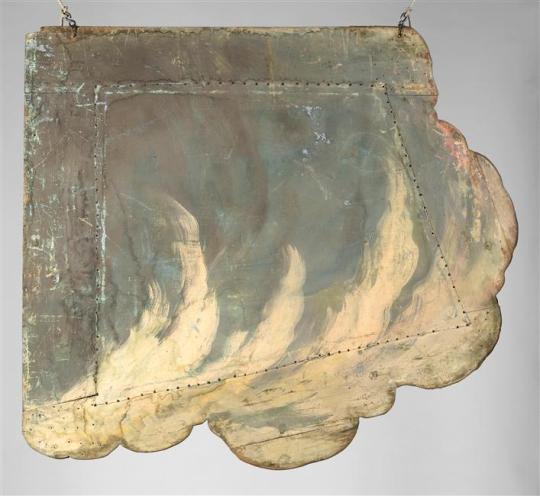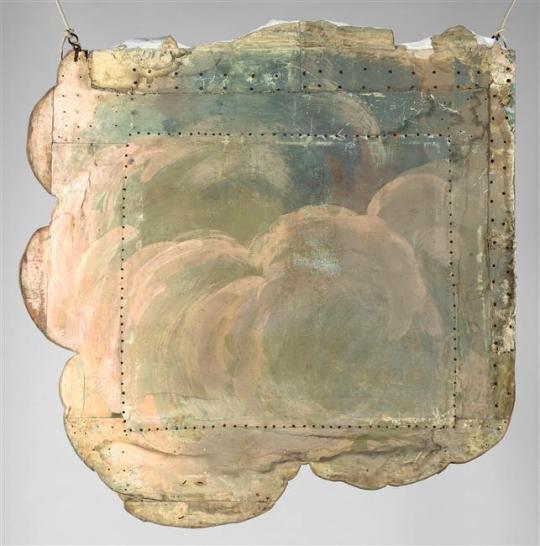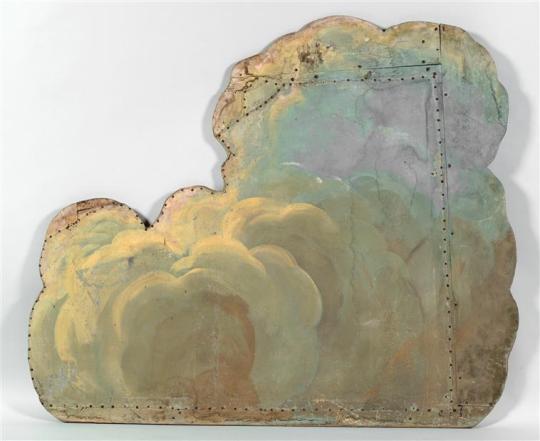#dardanus
Explore tagged Tumblr posts
Text








Clouds made from canvas and wood, scenery for a production of Jean-Philippe Rameau's opera , 'Dardanus' . The Palace of Fontainebleau, 1783 (8)
54 notes
·
View notes
Text
#aeneas#aphrodite#lycaon#priam#iphition#otrynteus#naiad#demoleon#antenor#hippodamas#polydorus#dryops#demuchus#philetor#Bias#Laogonus#Dardanus#Rhigmus#Peiros#deiphobus#hector
18 notes
·
View notes
Text

Dardanus Elmo Sionnach, Nico's great-grandpa (father of Tros) and husband to Reta Mae. Very stern and quiet, he worked for a grocery store for most of his years. He always wanted to work for the railroad but had a bad leg that prevented him from doing so. Their time frame is the early 1900s, around the 1910s. Dardanus' parents were Seba and James.
0 notes
Text

OHHHHHH i have been trying to figure out how alexander is related to cassandra for five thousand years but if he is the lion & the argives are the persians that makes perfect sense. okay sorry everyone who i have accused of lying on this matter very loudly in front of vast audiences
#aeacus and dardanus is sort of like saying achilles & zeus with extra steps i suppose. thesprotia is in epirus so olympias#& the other one erm well. need all mysteries be explained?
1 note
·
View note
Text
Everyone: gods can't reveal their real forms in the presence of mortals because it would literally kill them!
Demeter in Homeric Hymn 2: When she had so said, the goddess changed her stature and her looks, thrusting old age away from her: beauty spread round about her and a lovely fragrance was wafted from her sweet-smelling robes, and from the divine body of the goddess a light shone afar, while golden tresses spread down over her shoulders, so that the strong house was filled with brightness as with lightning. And so she went out from the palace.
Apollo in Homeric Hymn 3: Then, like a star at noonday, the lord, far-working Apollo, leaped from the ship: flashes of fire flew from him thick and their brightness reached to heaven. He entered into his shrine between priceless tripods, and there made a flame to flare up bright, showing forth the splendor of his shafts, so that their radiance filled all Crisa, and the wives and well-girded daughters of the Crisaeans raised a cry at that outburst of Phoebus; for he cast great fear upon them all. From his shrine he sprang forth again, swift as a thought, to speed again to the ship, bearing the form of a man, brisk and sturdy, in the prime of his youth, while his broad shoulders were covered with his hair: and he spoke to the Cretans, uttering winged words: ... So speaking, he put courage in their hearts, and the master of the Cretans answered him and said: “Stranger —though you are nothing like mortal men in shape or stature, but are as the deathless gods ...”
Aphrodite in Homeric Hymn 5: But at the time when the herdsmen drive their oxen and hardy sheep back to the fold from the flowery pastures, even then Aphrodite poured soft sleep upon Anchises, but herself put on her rich raiment. And when the bright goddess had fully clothed herself, she stood by the couch, and her head reached to the well-hewn roof-tree; from her cheeks shone unearthly beauty such as belongs to rich-crowned Cytherea. Then she aroused him from sleep and opened her mouth and said: “Up, son of Dardanus! —why sleep you so heavily? —and consider whether I look as I did when first you saw me with your eyes.”
Zeus in Moschos' Europa: And verily Crete appeared, and Zeus took his own shape again, and he loosed her [Europa's] girdle, and the Hours arrayed their bridal bed.
Just saying, it's a very bizarre excuse for why a god would supposedly need to have sex with a mortal in the shape of an animal or their spouse or anyone or anything else, because evidently it is perfectly possible for them to reveal their identity to mortals without killing them, or at least there is no consistent rule stating that they can't.
#who even decides what a god's 'true' form is supposed to be?#they are humanoid even when no humans are around; even when they are described as being on Olympos among other gods#We know this because they have hands and arms and skin and hair and eyes and eyebrows and ankles#they sleep in beds and sit on chairs and drink from cups and dress in clothes#ramblings#greek mythology#greek gods#demeter#apollo#apollon#aphrodite#zeus
96 notes
·
View notes
Text

Mania (active during the 5th to early 4th century BCE) served as the governor of Aeolis and led armies as a vassal of the Achaemenid Empire.
Her husband, Zenis of Dardanus, had governed Aeolis for the satrap (provincial governor) Pharnabazus II. When Zenis died of illness, Mania petitioned Pharnabazus, who had initially planned to appoint a man as her husband's successor. However, Mania sought the position for herself. According to Xenophon, she approached Pharnabazus with a large retinue and many gifts, both for him and to win favor with his concubines and the influential men at his court.
Her request was granted, and Mania became “mistress of the province”. She governed effectively and led successful military campaigns. She expanded her territory, capturing the cities of Larisa, Hamaxitos, and Kolonai with a force of Greek mercenaries. Mania also accompanied Pharnabazus twice in battle. Impressed by her abilities, he rewarded her and sometimes sought her counsel.
Polyaenus praised her as an exceptional general:
“She always went to battle drawn in a chariot; she gave out orders while in action, formed her lines, and rewarded every man who fought well, as she saw he deserved. And – what has scarcely happened to any general, except herself ��� she never suffered a defeat.”
Mania was over 40 years old (c.399 BCE) when she was murdered by her son-in-law Meidias, who reportedly claimed that “it was a disgraceful thing for a woman to be the ruler while he was in a private station.” Meidias also killed Mania’s 17-year-old son.
He then asked Pharnabazus to grant him control of the territory, but Pharnabazus rejected his gifts, stating that “he would not wish to live if he failed to avenge Mania.” Eventually, Mania’s cities were seized by the Spartan general Dercylidas. Meidias thus gained nothing in murdering Mania.
Here is the link to my Ko-Fi. Your support would be much appreciated!
Further reading:
Polyaenus, Stratagems in war
Xenophon, Hellenica
#mania#history#women in history#historyedit#women's history#ancient history#ancient world#warrior women#female generals#Achaemenid Empire#historical figures#4th century BCE#5th century BCE
128 notes
·
View notes
Text

mocker swallowtail (papilio dardanus) in the vegetable patch at a family friend's house
#took f o r e v e r for him to settle down#fieldnotes#butterflies#butterfly#lepidoptera#order lepidoptera#papilionidae#family papilionidae#m
741 notes
·
View notes
Text





Clouds for scenery [canvas and wood].
Nuages pour “Dardanus” de Rameau dans didon, 1783
Fontainebleau, château.
376 notes
·
View notes
Text
I'm an Apollon + Hermes/Mercurius devotee so of course I experience Barometric pressure (Hermes) sickness and mild heat exhaustion (Apollo) induced brain fog
yet I am given enough spoons to start writing an overdue to-do post on a Worshipper vs. Devotee approach to deity weekday worship, so please let me know if there's anything specific I should cover.
I've ordered myself some hydrating good (greek and salmon salads) in the meantime.
I should also thank Apollo and Hermes for allowing me to get home safely and well, after somehow enabling me to fire off some very well worded corporate work health & safety emails as a combined devotional act.
The Dardanus Act III synchronicity was an interesting touch...
#apollo devotee#thank you hermes#hermes devotee#deity communication#hellenic polytheism#hellenic paganism#hellenic gods#deity worship#deity work#roman paganism#greco roman paganism#religio romana#lord apollon#deity upg#polytheism#asks open
22 notes
·
View notes
Text
a starter! @harvestshope
Dead, dead, dead - Troilos was dead, a child not yet near enough ready for the battlefield, but he also hadn't even been killed on the battlefield. No, he'd been murdered. In a temple, at the altar. His divine father's temple and altar.
Thinking about it still made Ganymede sick.
Scrubbing his face, Ganymede stared up at the roof of the hekur, sunset bleeding around the tops of the sturdy stone building's roof. Two weeks since Troilos was murdered, the first son of Priam to die and he wasn't even old enough for battle. Two weeks, and it felt both like nothing, and an eternity. The family he now had still alive wasn't so very closely related any longer, but it didn't feel like it mattered. They were still kin, and this was nothing like Heracles' attack had been.
As well proven by the brutal murder of Troilos.
The Achaeans had acquiesced to nine days of mourning, but no one had apparently trusted to bury Troilos in a tumulus out on the plain. Instead, they'd used the building where the kings lay buried - his grandfather and father, his brother - one of them, anyway, as Assaracus lay with Dardanus buried in Dardanus - and even Laomedon.
And now Troilos, too, a child and never meant to be king. But as a son of Apollo as well as Priam and Hecuba - why would he not have the right to lay here?
Teeth grit, Ganymede clutched the small oinochoe closer and went inside. Down a slightly winding corridor, carved with prayers and names and the images of dead kings - he paused to brush a touch over both his father and brother's carven shapes, but then didn't stop until he stood in front of the right urn, wrapped in soft, purple cloth.
Ganymede fished out a small, golden toy horse from the bag he'd brought - fine as anything, it looked real. Zeus had handed it to him the other day without a word but with a brush to his cheek. Put it on the shelf next to the urn, and just as he was about to pour the small amount of nectar he'd brought as a libation, a noise behind him froze him still.
He should probably have come here later, when it was dark. But he'd wanted to be able to see Troy before he went down here and now---
"Is anyone there?"
Lowering both oinochoe and deer-headed rhyton made of gold, Ganymede turned around, asking even if he'd known what he'd heard. The shift of gravel underfoot.
25 notes
·
View notes
Note
When Troy was captured, and the Greeks divided the spoils, Eurypylus the son of Euaemon got a chest. In it was an image of Dionysus, the work, so they say, of Hephaestus, and given as a gift by Zeus to Dardanus.
[7.19.7] But there are two other accounts of it. One is that this chest was left by Aeneas when he fled; the other that it was thrown away by Cassandra to be a curse to the Greek who found it. Be this as it may, Eurypylus opened the chest, saw the image, and forthwith on seeing it went mad. He continued to be insane for the greater part of the time, with rare lucid intervals. Being in this condition he did not proceed on his voyage to Thessaly, but made for the town and gulf of Cirrha. Going up to Delphi he inquired of the oracle about his illness.
[7.19.8] They say that the oracle given him was to the effect that where he should come across a people offering a strange sacrifice, there he was to set down the chest and make his home. Now the ships of Eurypylus were carried down by the wind to the sea off Aroe. On landing he came across a youth and a maiden who had been brought to the altar of Triclaria. So Eurypylus found it easy to understand about the sacrifice, while the people of the place remembered their oracle seeing a king whom they had never seen before, they also suspected that the chest had some god inside it.
[7.19.9] And so the malady of Eurypylus and the sacrifice of these people came to an end, and the river was given its present name Meilichus. Certain writers have said that the events I have related happened not to the Thessalian Eurypylus, but to Eurypylus the son of Dexamenus who was king in Olenus, holding that this man joined Heracles in his campaign against Troy and received the chest from Heracles. The rest of their story is the same as mine.
-Pausanias, Description of Greece, Book 7
Oh too bad he regained his sanity lol but thanks for telling about this.
#greek mythology#ancient greek mythology#greek pantheon#eurypylus#Troy#Trojan war#Cassandra#cassandra of troy
13 notes
·
View notes
Note
Die Carthaginian scum! Carthago delenda est!
Moriemur inultae, sed moriamur. Sic, sic iuvat ire sub umbras: Hauriat hunc oculis ignem crudelis ab alto Dardanus, et nostrae secum ferat omina mortis. x
10 notes
·
View notes
Text
A Defense for Hephaestus
I have seen people trying to excuse Aphrodite and Ares’ affair by saying that Hephaestus is the bad guy and whatever else, and making the couple totally innocent. Allow me to state firstly that I don’t think any of them are wholly bad or wholly good, and given that they are gods the rules are definitely different for them, but still, people have not been necessarily fair one third of the people involved.
As I stated in a previous post, I am not a Hephaestus and Aphrodite shipper, as the relationship had no basis of love and it totally disregards the wonderful relationship that he has with his second wife Aglaia, of whom he had a truly loving and happy marriage. The marriage had often been said right from the beginning to not be a happy marriage, whether that neither of them wanted to be married to the other, or just Aphrodite being unhappy being married to someone who she doesn’t love, and that pretty much she jumped into an affair with Ares. So, to say that they grew to love each other or had always loved each other is a total departure of the original story, and again, a disservice to Aglaia, Goddess of Splendor and Beauty, one of the rare few couples in the Pantheon, who had been faithful to each other and had four daughters together.
People try to make him be the bad guy because he “bought Aphrodite” like some kind of goods to be traded with. I am not familiar with stories that say that, for the only ones I know, it was Zeus’ idea to match Aphrodite with Hephaestus. One story says that he did it because he feared that the gods would fight among themselves on who would get her, and Zeus chose to pair her with Hephaestus. One other story says that Zeus made it a competition; after Hephaestus had trapped Hera in the chair after her abandonment of him and refused to let her go, Zeus promised anyone who is able to bring Hephaestus to Olympus would get to marry Aphrodite. All the eligible gods tried their hand at getting Hephaestus to come; Ares thought he would win with an arm-wrestling game, but he failed, Dionysus thought he would get the drunken Hephaestus to come, but that failed too, and then on his own account, without knowing the competition, came to Olympus. Being a god of his word, Zeus married Aphrodite to the man who got Hephaestus to Olympus, which was Hephaestus himself. The other story is that in attempt to get Hephaestus to release Hera, he promised him the finest forge in the biggest volcano, a seat among the Olympians, and marriage to Aphrodite. None of these stories had Hephaestus has him bartering Aphrodite like a piece of meat. If there is a story that Hephaestus asks for her hand in marriage, then it’s probably one among others that clearly say Zeus was the one who set up the marriage.
There is the story of him and Athena, which is again, a story that isn’t concrete and has alternative stories to it. The story is that Hephaestus, for a brief time, had an interest in Athena, but she choosing to be a virgin, refused him, and then he attempted to assault her, but before he could, Athena left and his semen had fell on the earth. One version of the story says that Zeus encouraged Hephaestus to go after her, and we all know how Zeus’ love advice goes. Then there is another that says that the child that the semen had produced, Erichthonius, wasn’t born from him but just came from the earth, or more commonly, the son of the King Dardanus and his wife Batea. These stories cast enough doubt to those who want to view him as a good god, and honestly, if we do that what he attempted to do as fact, is he really worse than the other gods who had assaulted more than one woman, both mortal and immortal?
Does anyone else find people’s belief that Hephaestus doesn’t deserve Aphrodite/be luck he was married to her despite his disability kind of insulting? There isn’t an exact description of him, some just saying he has a disability in his leg, which could be a limp or totally gone, and possibly even described as ugly, which could go from simply unattractive to gods’ standards or downright ugly, but no matter what the extent of his appearance is, he deserves respect. When he caught Aphrodite and Ares in his trap, he invited Olympus to see and shame the couple in front of everyone, but pretty much the gods turned it around to be like “Good for you Ares” and “How does it feel to be cuckold Hephaestus, by your own brother?”, being cruel to Hephaestus. People use this as an excuse to make fun of him too, as if he is some joke and make Aphrodite and/or Ares look better. He doesn’t have to be your favorite god by any means, but to try and make his worth less than what he was, is an insult to him and those who look to him as an inspiration.
To conclude, we need to stop shipping him with someone who doesn’t love or even respect him, not diminish his worth, and actually see how great his relationship is with Aglaia for being one of the few people in his life who truly loved him for who he was and respected him as such.
44 notes
·
View notes
Text
Thancred probably doesn't even know his real birthday but I like to make him an Aquarius... because y'know... Thaliak.
The water carrier represented by the constellation Aquarius is Ganymede, a beautiful Phrygian youth. Ganymede was the son of Tros, king of Troy (according to Lucian, he was also the son of Dardanus). While tending to his father's flocks on Mount Ida, Ganymede was spotted by Zeus. The king of gods fell in love with him and flew down to the mountain in the form of a large bird, whisking Ganymede away to the heavens. Ever since, the boy has served as cupbearer to the gods. Ovid has Orpheus sing the tale in his Metamorphoses.
and now as I'm writing this and realizing even the myth is fitting... Louiesoix taking a liking to him (familial in this case) representing the bird (phoenix) and whisked him away to heaven...
#am I reading too much into it? yeah#but this man can fit so much water symbolism :')#WHAT DO YOU MEAN IT'S AN AIR SIGN-- ok whatever. we can't have it all.#; ooc rambles#thancred ; maybe I just need time to grieve.
8 notes
·
View notes
Text

like, i am going to be so honest with you all, i will never do something funnier than this. crackship toxic yaoi in which the rat who plays bass canonically kills himself and the machine, but make it aeneid 4 with dardanus (iirc) being remy from ratatouille.
3 notes
·
View notes
Text
Now that at last this ritual was performed
His duty to the goddess done, they came
To places of delight, to green park land,
Where souls take ease among the Blessed Groves
Wilder expanses of high air endow
Each vista with a wealth of light. Souls here
Possess their own familiar sun and stars.
Some train on grassy rings, other compete
In field games, others grapple on the sand.
Feet moving to a rhythmic beat, the dancers
Group in a choral pattern as they sing.
Orpheus the priest of Thrace, in his long robe
Accompanies, plucking his seven notes
Now with his fingers, now with his ivory quill.
Here is the ancient dynasty of Teucer,
Heroes high of heart, beautiful scions,
Born in greater days: Ilus, Assaracus,
And Dardanus, who founded Troy. Aeneas
Marvels to see their chariots and gear
Far off, all phantom: lances fixed in the earth,
And teams unyoked, at graze on the wide plain.
The Aeneid by Virgil, Translated by Robert Fitzgerald
2 notes
·
View notes